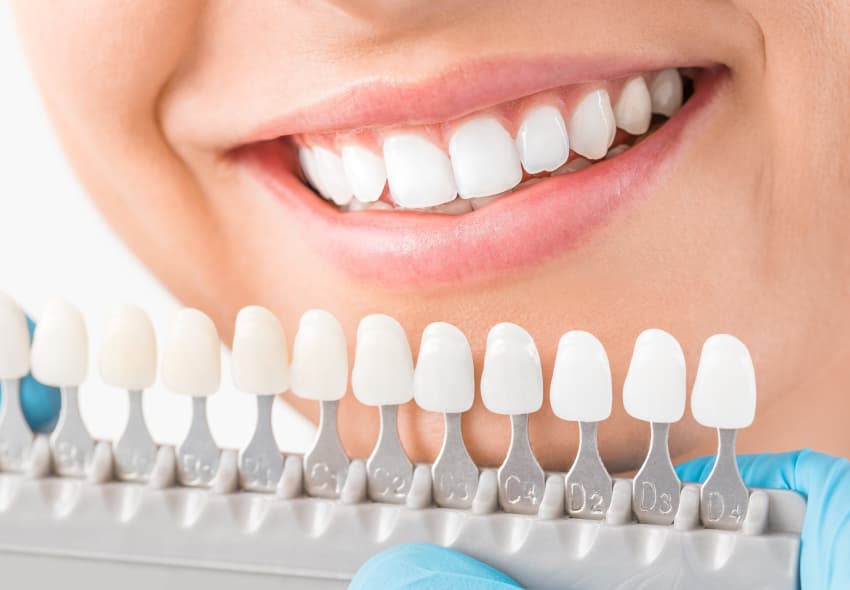
Teeth whitening is kind of a big deal. Many of our new patients tell us that they'd love to have a whiter, brighter smile. Most patients are so "all in" on teeth whitening that they rarely ask if it is safe for their teeth. Well, there are some helpful bits of information and a few tips that can make your tooth whitening experience a full success! I hope you'll enjoy the article below.
Yes. The ingredients in a standard whitening gel are safe for your teeth. Hydrogen peroxide in whitening gels can have harmful effects in high concentrations over long periods of time. However, these effects have never been demonstrated in humans following standard tooth whitening protocols. In fact, a study of patients using excessive whitening protocols for over 6 months did not show any harmful effects even 7 years later. A useful article on whitening safety by Whitening Guru, Dr. Harold Heymann can be found here. The best advice is to follow your Dentists instructions and to minimize or avoid contact between the whitening gel and your gums.
Teeth whitening will make your teeth more sensitive for a short period of time. But, this is not related to any change in your tooth enamel.
Most of the current tooth whitening gels contain a sedative ingredient to offset some of the sensitivity you feel during whitening. However, it also helps to get ahead of the sensitivity. The best way to do this? Start brushing with a Sensodyne or Colgate Anti-Sensitivity toothpaste 2-3 weeks before you initiate tooth whitening. This will help you to pre-condition your teeth against the possible sensitivity that arises during the whitening process.
Peroxides! Typically, hydrogen peroxide or carbamide peroxide. When a whitening gel makes contact with saliva, it releases molecular oxygen. This oxygen moves through your enamel loosening particles that contribute to stain and discoloration. Whitening gels, therefore, work like those old carpet cleaning solutions you'd see advertised on the shopping channel. In fact, you may remember those commercials touting "the power of molecular oxygen!". Well, whitening your teeth works on the same principle.
It's important to keep in mind that peroxides whiten tooth enamel but not dental fillings or porcelain on crowns, bridges and implant crowns. Therefore, you may find your teeth surpass the brightness of these synthetic materials during whitening. Also, if you are planning on having dental work done, you may want to whiten first. This will allow you to shade match your fillings, crowns and dental bridges to brighter natural teeth!
No. In-office whitening protocols typically involve 45-60 minute whitening time with a "light-activator" or "light-accelerator". These tend to be the most expensive whitening treatments. In fact, the special light functions only to heat and dehydrate your enamel. Because dehydrated enamel looks whiter than hydrated enamel, this serves to increase the overall whiteness of your teeth. However, your enamel will re-hydrate within 45-60 minutes and the extra whiteness will vanish. So, the whitening from the peroxide gel will last but the "extra" whitening from tooth dehydration will last only for an hour.
Whitening Guru, Dr. Harold Heymann, has written a useful paper discussing whitening protocols and effectiveness. Generally, all whitening products use the same peroxide chemistry to whiten teeth. Concentration and contact time can increase or speed results. However, all methods can reach the same maximum result or "ceiling" they may simply differ in the amount of time taken to get there.
I have yet to see a dental insurance provider cover teeth whitening. This is because it is a purely esthetic procedure with no functional benefit. The cost of whitening varies from office-to-office. Costs, typically range from free whitening to $500 for in-office treatments. Ask your Family Dentist for treatment costs.
I hope you have found this article helpful. Thanks for reading!
If you would like to meet with me to discuss tooth whitening, please call (519) 576-8160 or request a consult here.
This article is intended to promote understanding of and knowledge about general oral health topics. It is not intended to be a substitute for professional advice, diagnosis or treatment. Always seek the advice of your Kitchener Dentist or other qualified healthcare provider with any questions you may have regarding a dental condition or treatment.
Services
Routine Dentistry & Tooth Repair
Oral Surgery & Tooth Removal
Prosthetic Dentistry & Tooth Replacement
Protective/Preventive Services
Teeth Whitening
Schedule an Appointment Now
